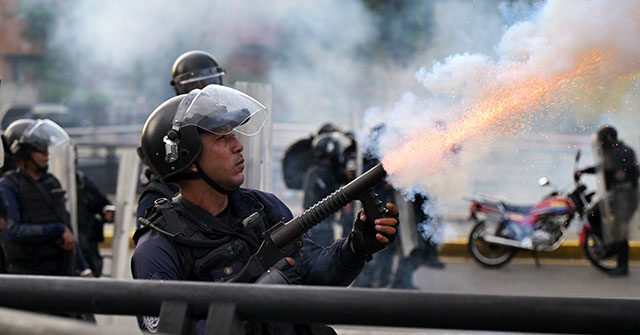The latest report from the United Nations Independent International Fact-Finding Mission on Venezuela has leveled serious accusations against Nicolás Maduro’s socialist regime, claiming it has committed crimes against humanity in the aftermath of the controversial presidential election held on July 28. The Fact-Finding Mission, established in 2019, has been tasked with investigating numerous human rights violations under Maduro’s governance. After the Human Rights Council voted in October to extend the Mission’s mandate for another two years, the mission’s findings included instances of killings, forced disappearances, sexual violence, and systematic torture perpetrated by state security forces and armed pro-government groups known as “colectivos.”
The election, characterized by accusations of fraud, has been widely deemed illegitimate by the international community. Although Maduro’s government declares that he won the election, evidence from the Venezuelan opposition suggests otherwise, pointing to Edmundo González as the true victor. Detailed in a 161-page report, the Fact-Finding Mission documented the extensive human rights abuses that have intensified following the election, revealing a deliberate effort by the regime to squash dissent. The report highlighted the systematic use of violence against critics, including vulnerable populations such as children and disabled individuals, through threats and torture aimed at extracting confessions for fabricated charges like terrorism.
The brutal crackdown by the Maduro regime generated considerable public unrest, leading to widespread protests against the alleged electoral fraud. This response was met with severe repression; according to United Nations estimates, at least 27 people were killed and over 2,400 were detained in the aftermath. The regime employed technology to target protesters, utilizing smartphone applications to track and apprehend dissenters. Furthermore, detainees were coerced into making forced confessions in degrading “terror” videos under “Operation Knock Knock.” The establishment of “reeducation camps” further demonstrates the regime’s focus on silencing opposition, as many detainees, including minors, are charged with terrorism for merely protesting.
Among the harrowing cases documented by the Mission are those of children subjected to violence during arrest, with one child suffering serious injuries due to beatings. Accounts of abuse were corroborated by testimonies from young girls detained in similar circumstances, where they were not only threatened but also faced sexual harassment and deprivation of food. The range of sexual and gender-based violence reported included acts like forced nudity, invasive searches, and coercive transactional sex, yet the government has maintained a position of denial regarding involvement in these abuses. The Attorney General asserted that no state actors were implicated in the fatalities, a statement met with skepticism given the indiscriminate nature of the violence reported.
The report has further summarized the deaths that occurred during this violent crackdown, identifying that a significant portion of casualties involved young men from impoverished neighborhoods. Many of the recorded deaths occurred shortly after the election, and most victims had been living in economically disadvantaged areas. Additionally, ambiguity surrounded the nature of the ammunition used in these killings, highlighting a lack of thorough investigation and accountability. The Fact-Finding Mission reaffirmed its position that these human rights violations align with crimes against humanity, emphasizing the political nature of the persecution faced by victims amid the regime’s campaign of silencing dissent.
As a direct consequence of the oppressive atmosphere fostered by the Maduro government, there has been a notable increase in the number of Venezuelans seeking refuge abroad. The desperation felt by citizens is evident in a survey conducted by Meganálisis, indicating that approximately 40% of the population—over 10 million people—are contemplating leaving the country. This exodus includes many who are traversing treacherous routes like the Darién Gap, as people attempt to escape the increasingly perilous conditions. The Fact-Finding Mission has voiced its commitment to continued investigations into human rights conditions surrounding the July 2024 elections, maintaining a clear focus on violence inflicted by government-backed armed groups.
In summary, the UN Fact-Finding Mission’s comprehensive report paints a grim picture of life in Venezuela post-election, illustrating the stark reality of human rights abuses and systematic state-led violence against its citizens. The continuing saga of political repression under Maduro’s regime underscores the desperate plight of Venezuelans as they navigate their increasingly dangerous environment. As international scrutiny persists, the implications of the Mission’s findings pose important questions about the future of democracy and human rights in Venezuela, calling for global awareness and action in response to the unfolding crisis.

